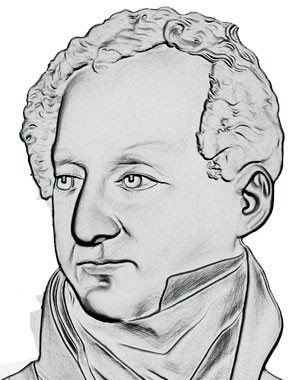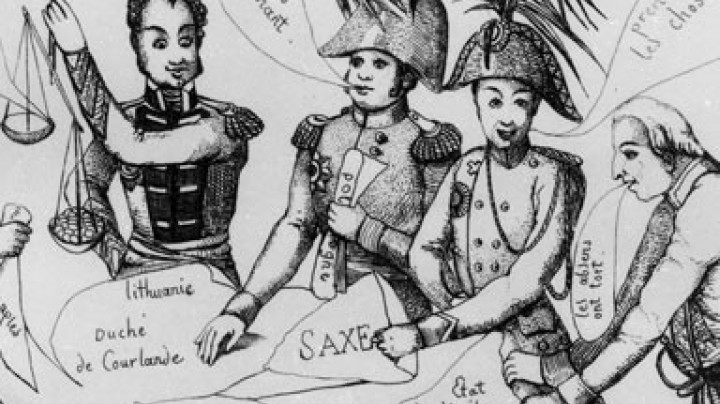Welcome to the Biedermeiers!
Emperor Franz II (I) on a visit to the Biedermeiers: just the once, the Monarch displayed a completely different image, appearing in the role of pater familias, wholly in keeping with middle-class ideals.
In the Biedermeier period middle class society was centred around family and domestic values. These social forms were also prevalent because Metternich’s repressive system maintained strict surveillance over public life. Thus the characteristic features of Biedermeier society were the retreat into the private sphere, the cultivation of intra-familial relationships and the family as a private interior space which was simultaneously supposed to constitute the mainstay of society. Industry, obedience and mannerliness were the values that reasonable citizens were expected to embrace.
Family portraits flourished in the Biedermeier age, as they documented the family idyll for one’s social circle and for posterity. Emperor Franz II (I) also took advantage of this medium to present himself as a father and grandfather in a modest middle-class setting. The family portrait of 1826, painted by Leopold Fertbauer, is barely distinguishable from conventional representations of a middle class family. Here the Emperor presents himself as head of the household surrounded by his close family; however, this kind of ‘middle class’ depiction still remained a rare exception to the rule.
The notion of the middle class family upheld the patriarchal principle: by referring to the allegedly natural difference between the genders the man’s dominant position continued to be guaranteed. As father he counted as the ‘natural’ head of an order ordained by God, and it was this that the Habsburg monarchs also saw as the fundament of their rule. In rural society, the father as master of his family, his farmhands and journeymen, enjoyed similar privileges. The man of the house legally represented his family to the world outside. The educated master of the household was complemented by his wife; it was her role to maintain harmony within the family and to take care of the house-keeping and bring up the children. The middle-class ethos did not allow wives to take employment. The man of the house had the power of authority over his family and provided their income. However, bourgeois domesticity and family life were the privilege of the upper strata of the population. Some eighty per cent of the people belonged to the classes with few or no privileges. Day-labourers, farm servants of either sex and journeymen had almost no chance of marrying, as they had no possessions or dowry to offer and, in addition, needed permission from their master.















